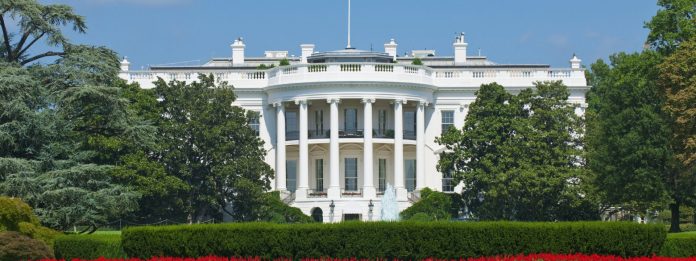
Amy HarderDec 10
KATOWICE, Poland — In theory, President Trump could lead hard but necessary negotiations at a climate conference here about the realities of the world’s significant dependence on fossil fuels and their role in warming the planet. But that’s not going to happen.
Driving the news: With Trump and his top advisers not acknowledging that humans are driving global temperatures up, and instead promoting coal and other fossil fuels full stop, a side event they’re hosting today will ring hollow and deepen the divide over energy and climate change.
“I have long believed that the GOP position on the science undermines its ability to put forward a real climate policy,” said George David Banks, a former top adviser to Trump on these issues.
While at the White House, Banks hosted a similar event last year at the same conference, which drew hundreds of protesters who said fossil fuels have no role at a climate summit. Expect the same this year.
The intrigue: Katowice, a small city in the heart of Poland’s coal-mining region, is hosting the big annual United Nations confab that’s seeking to make progress on the 2015 Paris Agreement. Trump has vowed to withdraw the United States from that agreement.
Coal’s presence is both palpable and shunned here:
Corporate sponsors include coal producers.
Poland’s public-relations pavilion is literally made out of coal, with coal soap, coal earrings and coal shower gel.
An environmental group gave the Polish government a derisive “Fossil of the Day” award, accusing it of not urging more aggressive commitments to the 2015 deal and promoting coal.
Reality check: Deriding fossil fuels, at a climate conference or anywhere, is unlikely to change the status quo. The reality is that oil, natural gas and coal provide all of us huge benefits by fueling our global economy. And yes, they also have a big negative impact on the environment. Those two things aren’t mutually exclusive.
The derision of fossil fuels could even be stymieing progress by deepening the disconnect between climate change rhetoric and energy reality.
“One of the problems with the coal conversation, is you can’t wag your finger to a country that’s still developing and say ‘no coal,’” said Rachel Kyte, CEO of Sustainable Energy for All, a UN group, and special representative of the UN secretary-general. “You have to help them make the choice to not go with coal sooner rather than later.”
The big picture: The ambition around the world for the Paris deal is lessening, fueled by nationalistic leaders like Trump and Brazil’s President-elect Jair Bolsonaro, who has criticized the deal and withdrew from hosting this same conference next year. As the political support for the agreement is waning, carbon dioxide emissions are rising.
“When I look at my hopes, compared to previous years, they are getting less and less because the numbers are stubborn,” said Fatih Birol, executive director of the International Energy Agency, an intergovernmental research group. “The political determination of the different governments is not as strong as it was three years ago.”
By the numbers:
Fossil fuels provide 81% of the energy consumed in the world. That figure that has not changed in 30 years.
Current energy infrastructure already accounts for 95% of emissions allowed under the Paris Agreement, according to the IEA.
That’s due mostly to coal-fired plants in Asia that are less than 15 years old, IEA says.
If technology that captures and stores carbon dioxide emissions from coal plants is widely adopted, the percentage drops to 80%.
This is where the Trump administration could, in theory, make a difference. In separate but similar statements ahead of today’s event, spokespeople for the White House and State Department said the world will be using fossil fuels for decades and that officials plan to discuss technologies and fuels that are otherwise ignored at a conference like this.
The administration is right that fossil fuels will be used for decades and that how to use those fuels more cleanly, such as with carbon-capture technology, is a subject that won’t get much attention at the conference.
But with Trump mocking climate change on Twitter, administration officials disavowing their own government’s reports on the matter and agencies rolling back environmental regulations, these legitimate messages are drowned out.
What’s next: One expert speaking at today’s event, Rich Powell, hopes progress can still be made reducing emissions even though the administration doesn’t acknowledge climate change is a problem. As executive director of the nonprofit ClearPath, Powell works on cleaner energy technologies from a conservative perspective.
“Our thesis is that we need a more realistic narrative about the solutions, which will bring a wider political acceptance on doing something about it.”
— Rich Powell, ClearPath executive director and panelist at Trump administration event






